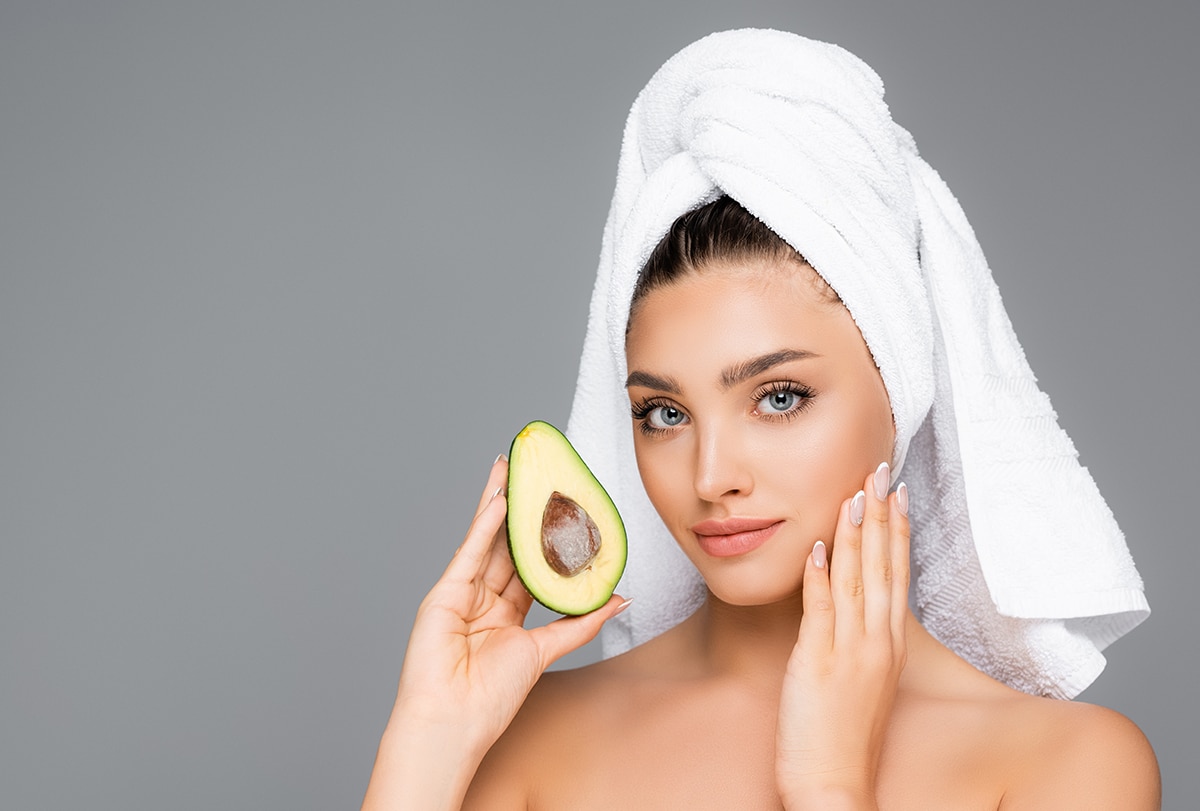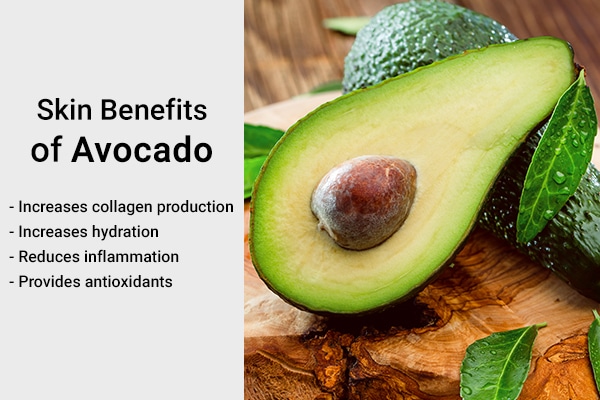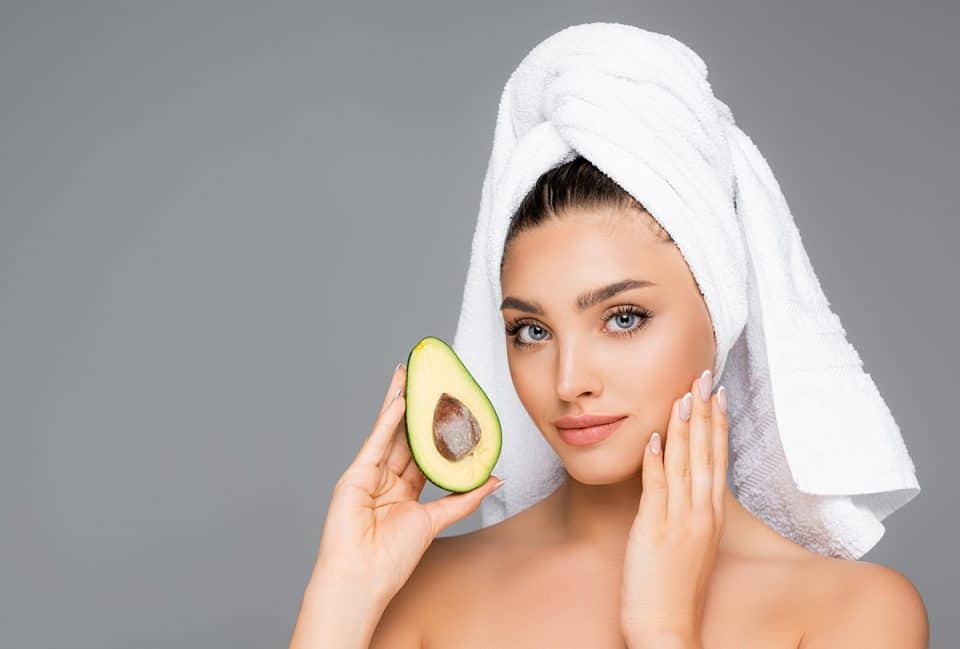No, avocado does not cause acne generally. In fact, avocado is very famous in the skin care world. This is because avocado (Persea americana) is an excellent energy-filled fruit with a very elevated nutritional value. It is a popular tropical fruit that is rich in proteins and vitamins.

Its pulp contains different oil levels that are widely utilized in the drug and cosmetic industries. Moreover, this fruit has been identified for its therapeutic benefits due to its content of beneficial compounds including: (1)
Avocado is considered good for the skin and can help treat acne. However, according to research, consuming avocado can trigger an allergic reaction in individuals who are allergic to avocado. This allergic reaction may lead to various symptoms, including acne. (2)
Skin Benefits of Avocado

The following benefits can be obtained from consuming avocado by those not allergic to the fruit.
1. Increases collagen production
A decrease in the amount of collagen makes the skin thin and dry. Collagen has been studied to be beneficial for skin structure and function. A loss in the same can make you prone to acne as well. (3)
Collagen is also required for the repair of scarring that occurs due to acne breakout. (4)
A study revealed that avocado oil taken via diet in animal models significantly increased the content of soluble collagen in the skin. So, avocado may play a significant role in preventing acne by boosting collagen formation in the skin. (5)
2. Increases hydration
Dry or poorly hydrated skin can pave the way for acne breakouts.
Earlier research on fixed plant oils has illustrated that avocado oil primarily remains at the surface of the skin and does not penetrate deep into the skin when applied topically.
Without moving deeper into the epidermis, avocado oil topically contributes to skin hydration by decreasing the loss of water. This property of avocado oil can provide protection from acne. (6)
3. Reduces inflammation
The body’s inflammatory response is a big player in the pathology of acne. Studies have deemed acne to be an inflammatory disorder of the skin. Therefore, dietary supplementation with avocado oil can be good at fighting acne since it has anti-inflammatory properties. (7)(8)
4. Provides antioxidants
Recent studies have highlighted the role of oxidative stress in the pathophysiology of acne.
According to research, patients with acne are under increased cutaneous and systemic oxidative stress. Therefore, the use of antioxidant compounds can be beneficial in treating acne. Dietary intake of avocado oil can help with the condition as it is rich in antioxidants including polyphenols, proanthocyanidins, tocopherols, and carotenoids. (9)(10)
How to Use Avocado on the Skin
You can use avocado oil either directly on your skin via topical application. Just apply the oil to the affected area and then later rinse it with warm water.
The best part about topical application is that it won’t leave any oily residue. You can also consume avocado oil by adding it to your salads.
Avocado Allergy
The research conducted by Telez-Diaz et al. found that avocado allergy is relatively common among individuals with atopy, with a prevalence rate of approximately 5%. Individuals with atopy are those who are predisposed to allergic reactions due to their genetic makeup.
The study also revealed that the majority of avocado-allergic patients experienced symptoms such as skin rash, itching, and swelling, which could exacerbate acne. Some patients also reported experiencing gastrointestinal symptoms, such as abdominal pain and vomiting. (2)
Points to Remember About Acne
Symptoms of acne
Acne symptoms depend on the severity of the condition. (11) These can be:
- Whiteheads or blackheads
- Red bumps
- Pimples
- Painful nodules
- Cystic lesions
Risk Factors for Acne
Some factors that can increase your risk of acne are:
- Increase in androgen levels
- Pregnancy
- Family history of acne
- Medications: corticosteroids, lithium
- Poor or unhealthy dietary habits
- Increased levels of stress
- Environmental irritants: pollution or high humidity
- Unhygienic way of living
- Poor skin care practices
Most-Asked Questions About Avocados for Acne
How is pure avocado oil different from virgin avocado oil?
Virgin avocado oil is produced from a lower quality without using any chemical solvents, whereas pure avocado oil is a bleached and deodorized oil that is infused with natural flavors. (12)
Which is more beneficial: avocado pulp or seed and peel?
According to dermatologists and experts, avocado pulp is more beneficial for the skin compared to the seed and peel. (1)
Avocado pulp is rich in healthy fats, antioxidants, and vitamins that nourish and hydrate the skin. Dermatologists recommend using avocado pulp as a natural skin care ingredient or DIY facial masks for its moisturizing and nourishing properties.
What is the recommended dosage for avocado?
There is no specific recommended dosage for avocado as it is a whole food and not a supplement. Avocado is generally considered safe to consume in moderation as part of a healthy diet.
Although the official avocado serving is one-fifth of the fruit (30 g), the average consumption is one-half of an avocado (68 g), according to the National Health and Nutrition Examination Survey (NHANES) analysis. (1)
Individuals with avocado allergies should avoid consuming avocado or any products containing avocado to prevent allergic reactions.
Final Word
Not only is avocado extremely tasty and everyone’s favorite tropical fruit, but it is also extremely good for the skin. You can include it in your diet to reap its amazing therapeutic effects.
Applying avocado topically can also keep your skin hydrated and help reduce the risk of acne.

